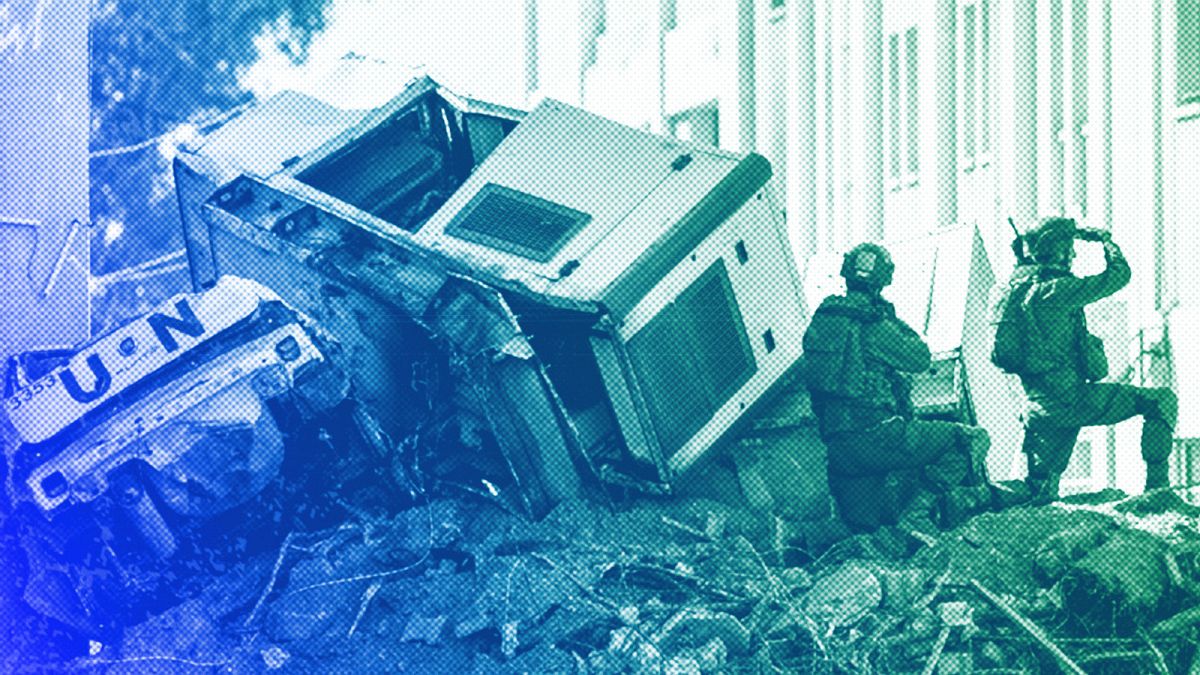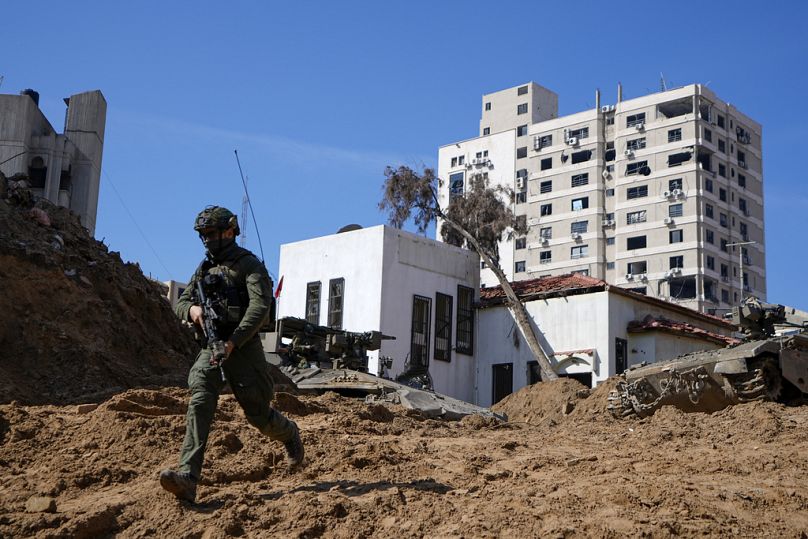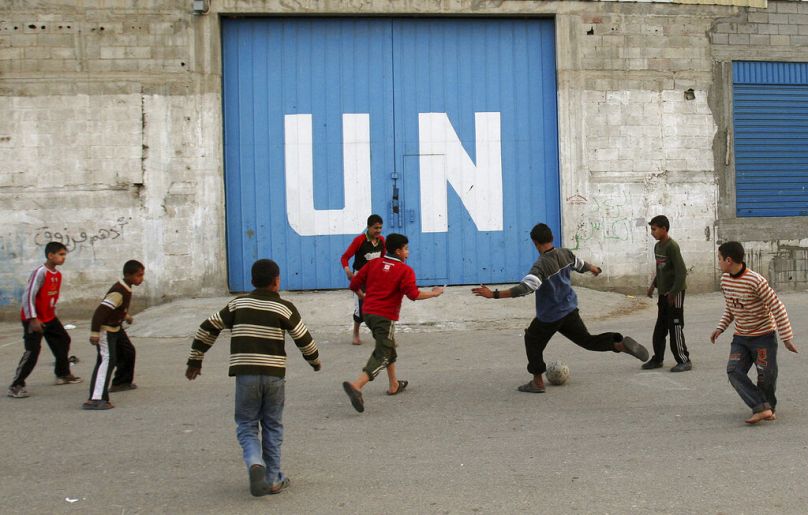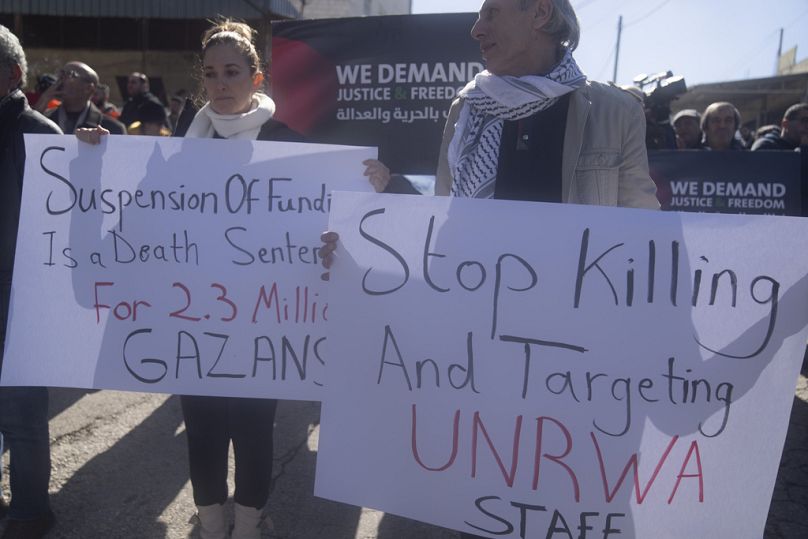The global consensus that humanitarian work is essential too easily surrenders the moral high ground, often with devastating consequences. It is time to recover that ground, Ambassador Mark Wallace and Dr Hans-Jakob Schindler write.
Evidence implicating UNRWA employees in the 7 October terrorist attacks should come as no surprise to anyone who has followed the activities of the UN’s agency for Palestinian refugees closely.
Allegations that some UNRWA workers were in fact Hamas operatives are merely the latest iteration of a much larger problem plaguing the international aid sector.
A stunning lack of oversight and regulation of humanitarian funds over the past several decades has allowed untold billions in taxpayer money to make their way into terrorists’ coffers.
While aid agencies may baulk at what they perceive as burdensome “red tape”, strict oversight and transparency are in fact fundamental to humanitarian work: they ensure that aid is delivered to those who need it, not diverted to extremist and terrorist groups.
Claims of no knowledge increasingly strain credulity
For years, UNRWA has played host to bad actors uninterested in a peaceful resolution to the Israeli-Palestinian conflict.
According to a dossier presented by Israeli intelligence, one in ten staff are terrorist “operatives”.
Some 23% of male UNRWA workers in Gaza have ties to Hamas or Palestinian Islamic Jihad (PIJ), compared to 15% of male Gazans as a whole. And 49% are alleged to have “close relatives” also tied to either Hamas or PIJ.
Claims by UNRWA that it had no knowledge of the vast network of Hamas tunnels under schools and hospitals, funded by billions of dollars of diverted aid, increasingly strain credulity.
Several UNRWA personnel over the years have been discovered to be terrorists or officials of terrorist organisations, including PIJ rocket-maker Awad al-Qiq, former Hamas interior minister Said Siam, and Humam Khalil Abu-Mulal al-Balawi, a suicide bomber who killed seven CIA employees in Afghanistan in 2009.
On 7 October, 12 UNRWA personnel helped Hamas execute the massacre, or aided the group in the wake of the attack.
According to the dossier, one of the agency staffers took a woman hostage, another dispensed ammunition, and a third took part in mass murder at an Israeli kibbutz.
This case is no exception
How did humanitarian workers come to play a role in the worst massacre of Jews since the Holocaust?
The reality is that UNRWA is by no means the exception when it comes to humanitarian terror financing. In the world of international aid, it’s an occupational hazard.
Throughout the 1990s, the Taliban regularly harassed and robbed aid agencies. The current Taliban regime likewise uses a network of sham local organisations to divert aid money.
In the early 2000s, reports emerged that in Somalia, the al-Qaida affiliate al-Shabaab had siphoned off so much international aid that it established a “Humanitarian Coordination Office”, charging aid groups to “register”.
Several years later, al-Shabaab continued to extort aid deliveries via roadblocks and so-called “taxes”.
In 2018, a partial audit of the United States Agency for International Development (USAID) found that some $700 million (€649m) of US taxpayer-funded programming in Iraq and Syria had been improperly vetted.
That same year, several dozen individuals and organisations who had received USAID funding in the region were blacklisted, and over $200m (€185.5m) in funds were frozen.
The Houthi rebel group in Yemen stifles almost all movement of international aid through the areas they control; they have set up a “humanitarian” agency, the Supreme Council for the Management and Coordination of Humanitarian Affairs and International Cooperation (SCMCHA), for the express purpose of re-directing aid toward their own militant ends. The results have been catastrophic for the Yemeni people.
Decisions that didn't age well
Regulating aid is not simply about alleviating security concerns. On the ground, any dime relinquished to a militant group is unlikely to achieve its stated aims and, as in the case of UNRWA, in fact, exacerbates the conflict it is trying to alleviate.
Just two years ago, the Biden administration began funding UNRWA again on the basis that the organisation had made commitments to “transparency, accountability, and neutrality”.
Several European governments, including Germany, even increased UNRWA funding in the wake of the October attacks.
Those decisions have obviously not aged well. But they are the result of a steady flow of arguments from humanitarian workers and aid groups who claim that regulations and sanctions, even with humanitarian exemptions, do little more than hamper their work.
This attitude is dangerously dismissive, as former UNRWA General Counsel James Lindsay wrote in a 2009 report: “UNRWA has taken very few steps to detect and eliminate terrorists from [its] ranks…and no steps at all to prevent members of terrorist organisations, such as Hamas, from joining.”
We can't keep surrendering the moral high ground
Brutal terror groups and extremist regimes will always see humanitarian funds as quasi-piggy banks for enhancing their own power.
Effective oversight, budget transparency, complete reporting requirements, as well as internal and external controls are indispensable elements to ensure that any developing problems are caught early, aid diversion is mitigated, and guardrails are in place to prevent international aid workers from being involved in terror groups or attacks.
Despite criticism from the EU’s High Representative for Foreign Affairs, several European countries, in addition to the US, have now suspended payments to UNRWA. This is a step in the right direction.
The global consensus that humanitarian work is essential too easily surrenders the moral high ground, often with devastating consequences.
It is time to recover that ground, which has for too long provided cover for the worst acts of terrorism.
Ambassador Mark Wallace serves as CEO and Dr Hans-Jakob Schindler is Senior Director at the Counter Extremism Project.
At Euronews, we believe all views matter. Contact us at view@euronews.com to send pitches or submissions and be part of the conversation.



